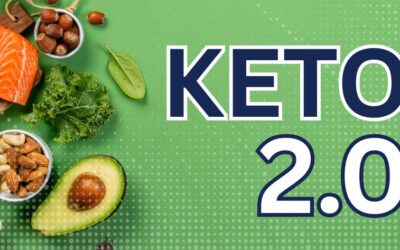We often think of air pollution as a problem for the lungs, however, new research suggests air pollution may also harm the liver and increase the risk of metabolic-associated fatty liver disease (MAFLD)—even at low exposure levels.
A recent study published in the Journal of Environmental Sciences found that long-term exposure to traffic-related air pollution can disrupt liver function, trigger inflammation, and lead to fatty liver disease. This condition, also known as hepatic steatosis, is now the most common liver disease worldwide and can progress to liver scarring (cirrhosis), liver failure, and even cancer.
Air Pollution and Liver Damage: The Study
The study, led by researchers at the University of Technology Sydney (UTS), examined how prolonged exposure to PM2.5 particles from traffic pollution affected liver health in mice. PM2.5 refers to fine particulate matter—microscopic air pollution particles that are small enough to be inhaled into the lungs and absorbed into the bloodstream.
Researchers exposed mice to PM2.5 particles collected from a major Sydney road, simulating real-world human exposure levels (10 micrograms daily). They then analyzed the effects at four, eight, and 12 weeks to track changes in the liver.
Key Findings
Cumulative Liver Damage – At four weeks, the liver showed minimal changes. By eight weeks, metabolic function was disrupted, and by 12 weeks, the mice exhibited significant liver damage, including inflammation, fibrosis (scarring), and altered fat metabolism.
Toxin Accumulation in the Liver – When PM2.5 particles enter the bloodstream, the liver acts as a filter to remove toxins, including heavy metals like arsenic, lead, nickel, and zinc. Over time, these toxins accumulate, triggering inflammation and oxidative stress.
Increased Immune Activity and Inflammation – Exposure to air pollution caused an immune response in the liver, attracting more inflammatory cells and leading to chronic inflammation, a key driver of liver disease.
Disrupted Fat Metabolism – The liver’s fat-processing pathways became overactive, increasing the production of triglycerides, diacylglycerols, and ceramides—all of which are linked to fatty liver disease and metabolic dysfunction.
Reduced Energy Storage – The liver stores less sugar for energy, disrupting blood sugar regulation and contributing to metabolic issues like insulin resistance and diabetes.
Changes in 64 Liver Proteins – The study identified 64 altered liver proteins, many of which are linked to fatty liver disease, immune dysfunction, and cancer risk.
According to Professor Hui Chen, lead author of the study, “We often think of air pollution as harming the lungs, but it has a broader impact on metabolism, immune function, and organ health. The liver plays a vital role in clearing toxins, regulating blood sugar, and producing essential proteins—when it’s not functioning properly, fatigue, metabolic disorders, and liver disease can develop.”
How Widespread is Fatty Liver Disease?
World-leading liver specialist Professor Jacob George, co-author of the study and Director of the Storr Liver Centre at The Westmead Institute for Medical Research, highlighted the growing prevalence of fatty liver disease.
- 45 percent of adults and 25% of children now have fatty liver disease
- Fatty liver disease is more common in individuals who are overweight or have diabetes
- Lifestyle factors like poor diet, lack of exercise, and excessive alcohol consumption contribute to its rise
- This research suggests environmental factors—like air pollution—may also play a major role in fatty liver disease
Supporting Liver Health with Detoxification, Nutrients & Diet
The liver is the body’s main detox organ, responsible for filtering out toxins, regulating metabolism, and processing fats, proteins, and hormones. However, exposure to pollution, processed foods, and environmental toxins can overwhelm the liver, leading to inflammation, oxidative stress, and fatty liver disease.
To fortify liver function and reduce the risk of fatty liver disease, it’s essential to support detoxification, provide the right nutrients, and eliminate harmful dietary triggers.
Accelerated Liver Care® - For Detoxification and Inflammation
The liver’s detox pathways rely on bile production, which helps remove toxins, excess hormones, and metabolic waste. When bile flow is sluggish, toxins build up, leading to inflammation and fat accumulation in the liver. The ingredients in Accelerated LIver Care™ support liver health in the following ways:
- Enhance bile production, essential for breaking down fats and eliminating heavy metals.
- Help reduce liver inflammation helping to protects against oxidative stress caused by air pollution and toxins.
- Support hormone balance by helping to clear out excess estrogen and endocrine disruptors.
- Helps to flush out environmental toxins, in turn, helping the liver process pollutants and chemicals from air, food, and water.
A sluggish liver struggles to process environmental toxins, leading to fatty liver, hormonal imbalances, and chronic inflammation. Supporting bile flow and detox pathways ensures efficient toxin elimination and metabolic health.
Accelerated Cellular Detox® Powder - to Help Bind and Remove Toxins, Excess Fat and Cholesterol
Even with a healthy liver, toxins can get reabsorbed into the bloodstream, contributing to fatigue, bloating, and inflammation.
The ingredients in Accelerated Cellular Detox® Powder act like a sponge, binding to toxins that are released by Accelerated Liver Care® and carrying them out of the body.
The carefully crafted ingredients work together in the following ways to support liver health:
- Ingredients bind to heavy metals (lead, arsenic, cadmium, and mercury) and toxins from air pollution, preventing them from being reabsorbed into the bloodstream.
- Support the reduction of gut inflammation by eliminating toxins, endotoxins, and harmful bacteria that stress the liver.
- Support digestion & detoxification to help improve bowel regularity, so toxins don’t sit in the gut.
- Helps to relieve bloating, fatigue, and a sluggish metabolism by encouraging efficient toxin removal.
- Help remove excess dietary fat and cholesterol from the body.
A toxic liver leads to bloating, weight gain, and sluggish digestion. Regular detoxification removes harmful substances before they accumulate and cause damage.
Acceleradine® Iodine for Increased Energy and Cleansing the Blood
Pollution, toxins, and poor diet expose the liver to oxidative stress, which damages liver cells and increases fatty liver disease risk. Iodine plays a crucial role in detoxification, liver function, and metabolic health.
Iodine supports liver health in the following ways:
- Flushes out heavy metals, fluoride, bromide, and chlorine. These chemicals block detox pathways and impair liver function
- Enhances thyroid function. The thyroid and liver work together to regulate fat-burning and metabolism
- Reduces oxidative stress by protecting liver cells from inflammation caused by pollution.
- Balances hormones by helping detox excess estrogen, preventing liver congestion
When the thyroid is sluggish, metabolism slows down, and the liver can’t detox efficiently. Iodine supports both thyroid and liver function, ensuring proper fat metabolism and toxin clearance.
Accelerated AMINOS™ For Regeneration and Tissue
The liver requires amino acids to regenerate tissue, process toxins, and maintain metabolic health. However, stress, pollution, and poor diet can deplete amino acid levels, slowing down liver repair and detoxification.
The ingredients in Accelerated AMINOS™ work synergistically to help:
- Provide essential amino acids to the body which supports liver cell regeneration and bile production.
- Maintain metabolic function, preventing fatty liver progression.
- Boosts neurotransmitter production, supporting brain and liver communication for better energy levels.
- Helps reduce inflammation as amino acids repair tissue damaged by oxidative stress and toxins.
- Helps lower blood sugar and improve insulin sensitivity.
Without enough amino acids, the liver can’t process toxins efficiently, leading to fatigue, poor digestion, and chronic inflammation.
Foods To Avoid for Optimal Liver Health
To support liver detoxification, reduce inflammation, and improve metabolism, it’s crucial to eliminate foods that burden the liver, clog detox pathways, and contribute to fatty liver disease.
Many seemingly “healthy” foods can hinder liver function due to their high oxalate, sulfur, or processed ingredient content. Avoiding these toxic triggers allows the liver to focus on detoxification, fat metabolism, and overall healing.
Oxalate-Rich Foods – A Hidden Cause of Liver Stress
Oxalates are naturally occurring plant compounds found in many leafy greens, nuts, and vegetables. While they are often promoted as “healthy,” excessive oxalate intake can:
- Increase liver inflammation by forming crystals that damage liver cells
- Overburden detox pathways, making it harder for the liver to clear out toxins
- Lead to kidney stones and mineral deficiencies, especially in those with impaired detox function
High-Oxalate Foods to Avoid:
- Spinach – One of the highest oxalate-containing foods, known to contribute to liver inflammation and kidney stress
- Almonds & Almond-Based Products (Almond Milk, Almond Butter) – High in oxalates, which can slow liver detox and cause metabolic imbalances
- Sweet Potatoes – A seemingly “healthy” food, but its oxalate content can contribute to toxin accumulation
- Beets & Beet Greens – Another oxalate-heavy food that can hinder liver function
- Chia & Sesame Seeds – Contain oxalates that may disrupt mineral absorption
Healthier Alternatives to High-Oxalate Foods:
- Low-Oxalate Vegetables: Romaine lettuce, zucchini, cucumber, and bell pepper
- Liver-Friendly Nuts & Seeds: Macadamia nuts, coconut, and flaxseeds
Sulfur Rich Foods - A System Disruptor
Sulfur-containing foods like garlic, onions, and cruciferous vegetables were once beneficial, but due to modern environmental toxins like glyphosate (pesticides) and heavy metals, many people struggle to metabolize sulfur efficiently.
When sulfur detox pathways are impaired, sulfur-containing foods can:
- Convert into sulfites, which are toxic to the liver and increase oxidative stress
- Disrupt bile flow, leading to poor fat digestion and toxin buildup
- Worsen bloating, digestive distress, and brain fog
High-Sulfur Foods to Avoid:
- Garlic & Onions – Can cause excess sulfite production, leading to inflammation and oxidative stress in the liver
- Cruciferous Vegetables (Broccoli, Cauliflower, Cabbage, Kale, Brussels Sprouts) – When sulfur metabolism is impaired, these veggies can increase toxicity rather than aiding detox
- Egg Yolks – High in sulfur, which can worsen symptoms in those with sluggish detox pathways
- Legumes (Lentils, Chickpeas, Black Beans) – Contain sulfur compounds that some people struggle to metabolize properly
Healthier Alternatives to Sulfur Rich Foods:
- Liver-Supporting Vegetables: Zucchini, carrots, cucumbers, and squash
- Protein Sources Without Sulfur Overload: Wild-caught fish, wild meats like bison, venison, elk and lamb
Processed Foods & Refined Sugars
Processed foods and refined sugars are among the biggest contributors to fatty liver disease, as they:
- Cause insulin resistance, forcing the liver to store excess sugar as fat.
- Lead to chronic inflammation, impairing the liver’s ability to detox properly.
- Overload the liver with synthetic chemicals, artificial ingredients, and preservatives.
Harmful Processed Foods to Avoid:
- Refined Sugar (White Sugar, High-Fructose Corn Syrup, Artificial Sweeteners) – Directly contributes to fatty liver, inflammation, and metabolic dysfunction
- Vegetable & Seed Oils (Canola, Soybean, Sunflower, Corn Oil) – High in inflammatory omega-6 fats, which stress the liver and increase fat storage
- Processed Meats (Deli Meats, Bacon, Sausages, Hot Dogs) – Contain preservatives and toxins that disrupt detoxification
- Packaged Snacks & Fast Food – Loaded with trans fats, artificial flavors, and preservatives, which burden liver function
Healthier Alternatives to Processed Foods:
- Natural Sweeteners – Raw honey, stevia, monk fruit
- Healthy Fats- Avocados, coconut oil, ghee
- Whole, Unprocessed Foods – Wild animal proteins, organic vegetables, and properly prepared whole foods
Refer to the Accelerated Food Guide for a complete list of optimal foods to focus on.
Final thoughts
Our modern world is filled with hidden toxins, from the air we breathe to the food we eat. While traffic-related air pollution is often associated with lung disease, this research clearly shows that even low levels of exposure can harm the liver, contributing to fatty liver disease, inflammation, and metabolic dysfunction.
With nearly half of adults and a quarter of children now affected by fatty liver disease, it’s crucial to take proactive steps to protect liver health. While we can’t always control our exposure to pollution, we can support the liver’s detoxification pathways, eliminate dietary triggers, and replenish key nutrients to help the body process and eliminate toxins effectively.
Sara Banta
Sara Banta is a Stanford University Graduate with a Degree in Economics and Psychology, and a certified Natural Supplement Expert & Graduate of the Institute for Integrative Nutrition. Sara is the Founder of Accelerated Health Products and host of the health & wellness podcast, Accelerated Health Radio.
- Sara Bantahttps://sarabantahealth.com/author/sarabanta/
- Sara Bantahttps://sarabantahealth.com/author/sarabanta/
- Sara Bantahttps://sarabantahealth.com/author/sarabanta/
- Sara Bantahttps://sarabantahealth.com/author/sarabanta/









